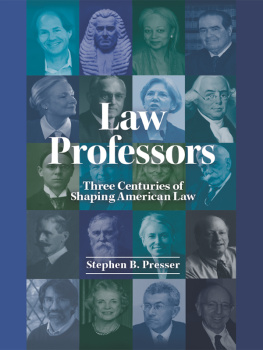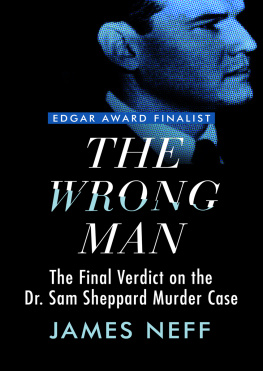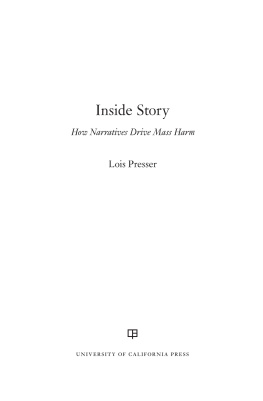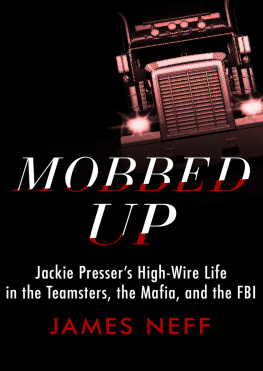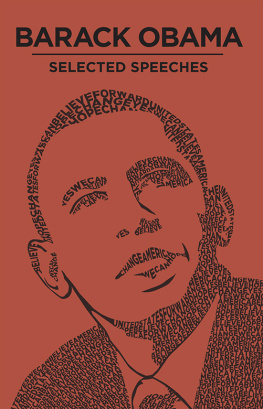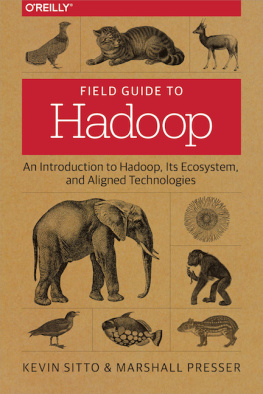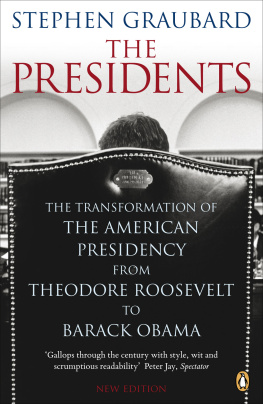Page list

WEST ACADEMIC PUBLISHINGS
LAW SCHOOL ADVISORY BOARD
____________
JESSE H. CHOPER
Professor of Law and Dean Emeritus,
University of California, Berkeley
JOSHUA DRESSLER
Distinguished University Professor, Frank R. Strong Chair in Law
Michael E. Moritz College of Law, The Ohio State University
YALE KAMISAR
Professor of Law Emeritus, University of San Diego
Professor of Law Emeritus, University of Michigan
MARY KAY KANE
Professor of Law, Chancellor and Dean Emeritus,
University of California, Hastings College of the Law
LARRY D. KRAMER
President, William and Flora Hewlett Foundation
JONATHAN R. MACEY
Professor of Law, Yale Law School
ARTHUR R. MILLER
University Professor, New York University
Formerly Bruce Bromley Professor of Law, Harvard University
GRANT S. NELSON
Professor of Law, Pepperdine University
Professor of Law Emeritus, University of California, Los Angeles
A. BENJAMIN SPENCER
Earle K. Shawe Professor of Law,
University of Virginia School of Law
JAMES J. WHITE
Robert A. Sullivan Professor of Law Emeritus,
University of Michigan
i
LAW PROFESSORS
THREE CENTURIES OF SHAPING AMERICAN LAW

Stephen B. Presser
Raoul Berger Professor of Legal History Emeritus
Northwestern Pritzker School of Law
Professor of Strategy
Kellogg School of Management
Northwestern University

ii
The publisher is not engaged in rendering legal or other professional advice, and this publication is not a substitute for the advice of an attorney. If you require legal or other expert advice, you should seek the services of a competent attorney or other professional.
2017 LEG, Inc. d/b/a West Academic
444 Cedar Street, Suite 700
St. Paul, MN 55101
1-877-888-1330
West, West Academic Publishing, and West Academic are trademarks of West Publishing Corporation, used under license.
Printed in the United States of America
ISBN: 978-1-63459-045-7
iii
To Susan Graff
v
PREFACE
____________
This book is a love letter to the teaching of law. It is a biographical examination of American (and two English) law professors, but its purpose is to illuminate what holds American society together, and to further the understanding of shared American values, in an age when those values are more at risk than at any time for the last sixty years. One way of understanding the current American political turmoil is to see it as a struggle over the manner in which the law ought to be understood and administered, a struggle as old, really as our republic itself. Our two major political parties now understand the rule of law very differently, and these two approaches to the law and to the American Constitution provide consistent threads to the analysis offered here. Anyone seeking to understand American law, the Constitution, or American legal education must come to grips with this basic disagreement about law and legal institutions. One view of the law, one reaching all the way back to Plato, if not before, is that it is a reflection of divine order, but another (also offered by Plato) is that the law is nothing but the will of the powerful in society. Put slightly differently, from the beginning of American history some, like Jefferson, believed that the principles of the law were dictated by nature and by natures God, while others, like the Jacksonian lawyer, Robert Rantoul, thought the law ought simply to be whatever the American people wanted. Many different dualities have captured this fundamental difference in legal and Constitutional perspective, including the divide between natural lawyers and positivists, that between common lawyers and codifiers, that between advocates of Constitutional original understanding and a Living Constitution, and that between the economic analysts of law and Critical Legal Studies.
vi
The continuing academic, political, Constitutional, and social disagreement about the nature of American law, as well as our simultaneous commitment to the irreconcilable competing American values of democracy, equality, economic progress, individualism and altruism, are the twin dynamics that are explored here in the course of an examination of law professors from Blackstone to Barack Obama. Since John Adams wrote it into the Massachusetts Constitution of 1780, it has been our national aspiration to have a government of laws, and not of men. This book is the story of how one group of men and women, the law professors, tried, and are still trying, to realize that American ideal.
STEPHEN B. PRESSER
August 2016
Asheville, N.C.
vii
ACKNOWLEDGMENTS
____________
This book would not be appearing were it not for the faith in me and the extraordinary encouragement shown by my editors at West, with whom I have had a relationship since 1980. West Academics current daring and fearless Editor-in-Chief, Louis Higgins, made the decision to accept the proposal for the book when it was little more than an idea, and an idea rather different from the usual law school casebook. He and his colleagues are the kind of publishers every author dreams of. West Academics Acquisitions Editor, Bonnie Karlen, has cheerfully worked with me shaping the book and overseeing the collection of the pictures, Greg Olson, West Academics Manager of Editorial Production, has been in charge of the overall editing of the book, aided by Laura Holle, Lead Publication Specialist, and Michele Bassett, Senior Publication Specialist, my scrupulous and devoted copy editor, who has accommodated my eccentricities, including, for example, my desire to have sequentially numbered footnotes for the whole volume. Im also grateful to Carol Logie, Senior Layout Designer, for her elegant conception of how the book should look.
Northwesterns Pritzker School of Law has always furnished me with superb research assistants, and one of the best I have ever had, Jeffrey Bingham, did the spadework on all of the subjects here treated, and taught me new cyber technologies in the process. Similar aid was provided by Marco Minichiello, Arnav Dutt, and Aaron Washco. My indefatigable faculty assistant, Timothy Jacobs, was, as usual, indispensable in providing all kinds of logistical support and companionship during the three years the book went from conception to execution. Northwesterns current Dean, Daniel Rodriguez, eased my transition to emeritus status and provided me with extraordinary support, as did his predecessors David Van viii Zandt, and Robert Bennett. The friendship and mentoring of David S. Ruder, Dean when I joined Northwestern, whom I served as Associate Dean, and who, really, taught me more than anyone else, what it means to be a law professor, has been an essential foundation for my teaching and research. Something similar might be said of the many hundreds of students both at the School of Law and at Kellogg, from whom I have probably learned more than I have taught.
Some of the analysis in this book was formulated in the course of pieces I wrote for Chronicles: A Magazine of American Culture (which I have the privilege of serving as legal affairs editor), and reviews that I wrote for the University Bookman . Tom Fleming brought me to Chronicles , and Ive continued to work happily and productively with Chilton Williamson, Aaron Wolfe, and Scott Richert there. Ive been similarly lucky in my relationship with Gerald Russello, at the University Bookman . Those five have helped me understand and articulate a paleo-conservative approach to American common and Constitutional law, which has informed the treatments in this book.

